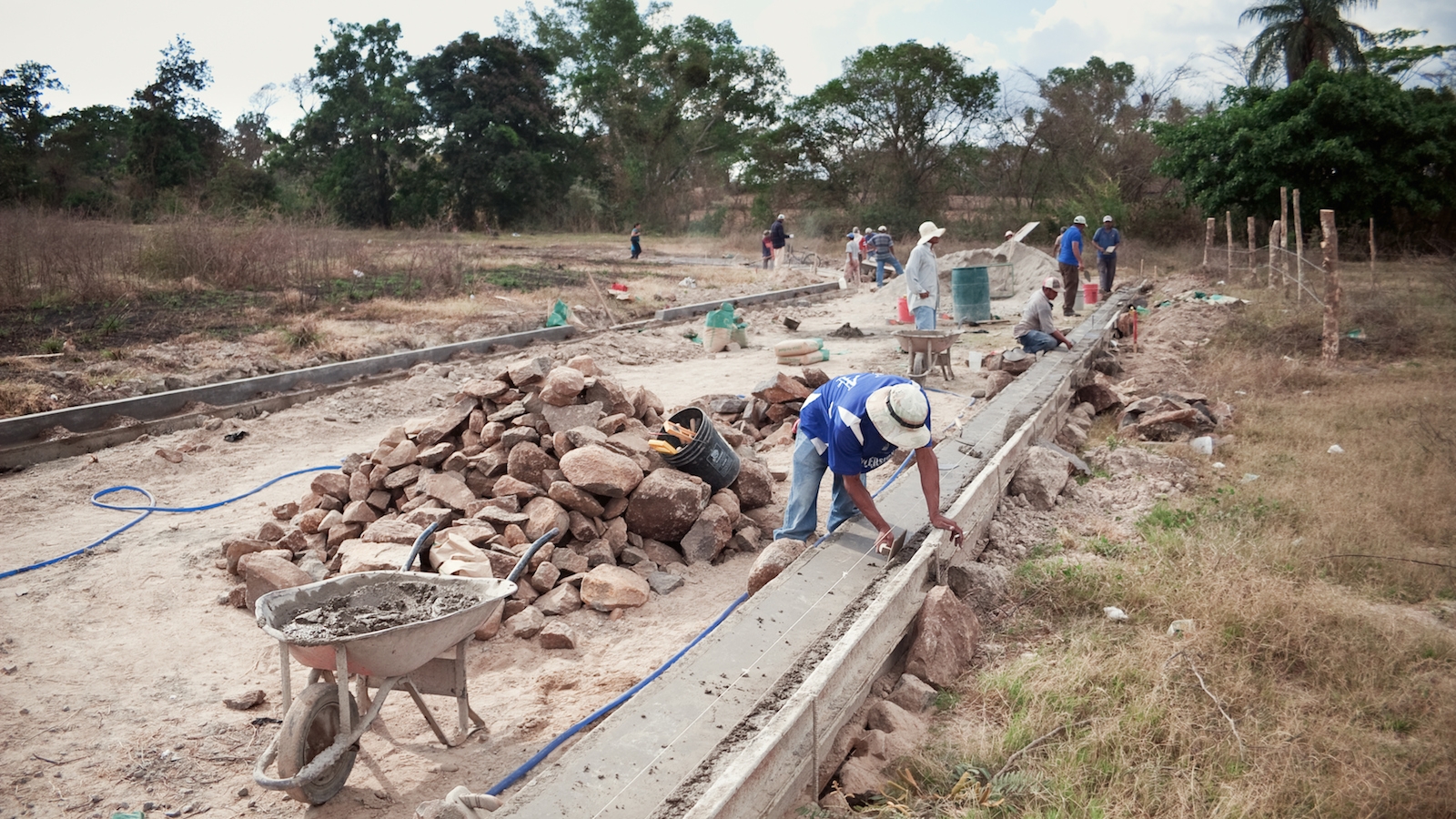Commentary on Parashat Eikev, Deuteronomy 7:12 - 11:25
I participated in the AJWS Rabbinical Student Delegation to El Salvador because I thought I would find some answers to my questions about global poverty and development. Instead, I left with more questions.
I have held an ideological commitment to sustainable development, workers’ rights, and poverty reduction for a long time, but I have to admit that I have done relatively little to contribute to finding solutions. I give a modest amount annually to organizations like Oxfam and AJWS that work in the developing world. I vote in ways that I think will result in better policies for the world’s farmers and workers. I try to buy fair trade products. But, I have made few personal sacrifices.
On the trip to El Salvador, one of my fellow rabbinical students asked a question that resonated with many of us: What would it take for me to see my host family as my own family? His question brought into focus the issue of empathy and the barriers within ourselves that keep us from caring and acting. Parashat Eikev recognizes the problem of empathy and addresses it.
Choice of Language
As the Torah does repeatedly, this Torah portion bids us to take up the cause of the vulnerable in our society:
[God] upholds the cause of the fatherless and the widow, and befriends the stranger, providing him with food and clothing. You too must befriend the stranger, for you were strangers in the land of Egypt. (Deuteronomy 10:18-19)
In these verses, the Torah gives us two reasons why we should care about others. First, we should do it to emulate God. And secondly, we should have empathy because we, as a nation, know what it means to be oppressed. Why then, do we so often fail to meet the ideals set forth here?
The verses themselves offer a hint in their choice of words. The verse uses the word “stranger” rather than “poor.” In the modern world, the poor of the developing world often seem very distant from ourselves and our lives in North America. We have trouble identifying or empathizing with those who are so far away and live lives so different from our own.
Experience has taught us that there tends to be a correlation between our identification with a person in need and our inclination to help that person. We ignore the suffering of people in our global community by making them strangers. This, in a way, allows us to turn away from them. Even when we recognize their need, we are less inclined to help a “stranger.”
We Are All Connected
But this inclination is flawed and the Torah comes to tell us so. In a global economy we are all inextricably interconnected. Our mundane daily decisions — what we buy and eat, the kind of car we drive, the things we throw away — affect every other living creature on earth.
The sense of distance that we create is an emotional barrier to empathy. We have many ways of rationalizing our lack of action. Parashat Eikev helps remind us that this is not an acceptable response. In the Torah portion, God asks us to remove the emotional barriers that hold us back from doing what is right and just: “Cut away, therefore, the thickening about your hearts and stiffen your necks no more.” (Deuteronomy 10:16) Our work is to open our hearts to the recognition of our interconnectedness. Toward this end, there is no shortcut.
This commentary is provided by special arrangement with American Jewish World Service. To learn more, visit www.ajws.org.
Torah
Pronunced: TORE-uh, Origin: Hebrew, the Five Books of Moses.



